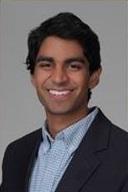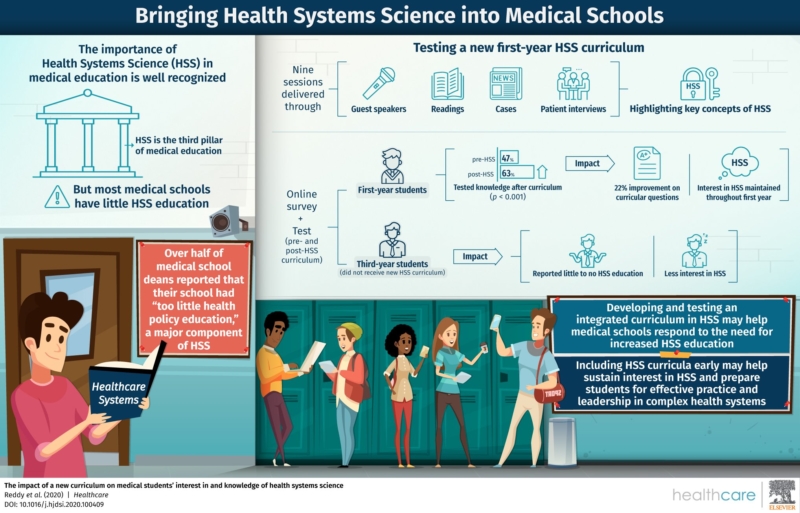From studying the molecular processes of life to learning how to examine patients, future physicians have a packed schedule during their four years in medical school.
Researchers at the Keck School of Medicine think it’s worth adding one more thing to their academic plate: a course in health systems science, a field that explores how patients navigate the complex systems that encompass U.S. health care.
Their work on developing, implementing and evaluating this curriculum is described in an article published recently in the journal Healthcare. The lead author is Surabhi Reddy, a fourth-year medical student who was advised by Sonali Saluja, MD, MPH, an assistant professor of clinical medicine.
“As students, we spend a lot of time on rare, esoteric conditions but very little time on understanding whether a patient can afford their copay, how changes to the Affordable Care Act affect their ability to get coverage, or the broader societal impacts of a public health crisis like COVID-19,” Reddy said. “These are things medical students want to know and need to know.”
To address that gap, Saluja and other faculty members worked with community health experts, health economists and patient advocates to develop a curriculum for first-year medical students. Introduced in 2017, the nine-session course comprises guest lectures, group discussions, readings, case studies, and patient interviews.
To evaluate the curriculum’s effectiveness, the researchers used an online survey to measure students’ interest in and knowledge of health systems before and after the sessions. Third-year med students, who did not have the opportunity to take the new curriculum, were surveyed as a benchmark. The results showed that first-year students had a high interest in healthcare systems: 90% expressed an interest before the sessions and 88% after the sessions. Third-year students also reported interest, with 72% expressing an interest despite having no formal training.
In terms of knowledge, first-year students scored significantly higher on a health systems quiz after taking the course, with their scores increasing by 16 percentage points. First-year students who completed the curriculum also showed significantly higher test scores than third-year students who did not complete the curriculum.
Saluja said this knowledge will empower the next generation of medical providers to advocate for patients as they navigate a rapidly changing and increasingly complex health care system.
“We’ve received really positive feedback from medical students who are realizing how many structural and systems-based barriers exist when it comes to people being able to access health care,” Saluja said. “For example, many students are realizing how expensive out-of-pocket costs can be for patients, or how hospitals and clinics can refuse to take care of a patient based on their health insurance plan.”
Reddy said he hopes the study will offer guidance to other medical schools looking to formalize health systems education.
“Despite the challenges of squeezing a new course into an already packed academic schedule, we have shown that it is possible to deliver an effective program that students see value in. I think it’s only a matter of time until we see similar offerings at all medical schools.”
The title of the paper is “The impact of a new curriculum on medical students’ interest in and knowledge of health systems science.” In addition to Reddy and Saluja, authors are: Allie Obremskey, MD, who graduated in May 2020 and is now a Pediatrics resident at the University of Washington; Michael Hochman, MD, MPH, associate professor of clinical medicine; Pamela Schaff, MD, associate professor of clinical medical education, family medicine, and pediatrics (Educational Scholar); and Gregory Harlan, MD, MPH, associate professor of clinical pediatrics.
The work was supported by the Keck School’s Humanities, Economics/Ethics, Arts and Law Committee, the Gehr Family Center for Health Systems Science and Innovation, and the Schaeffer Center for Health Policy and Economics.
— By Sarah Nightingale

